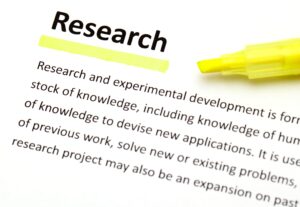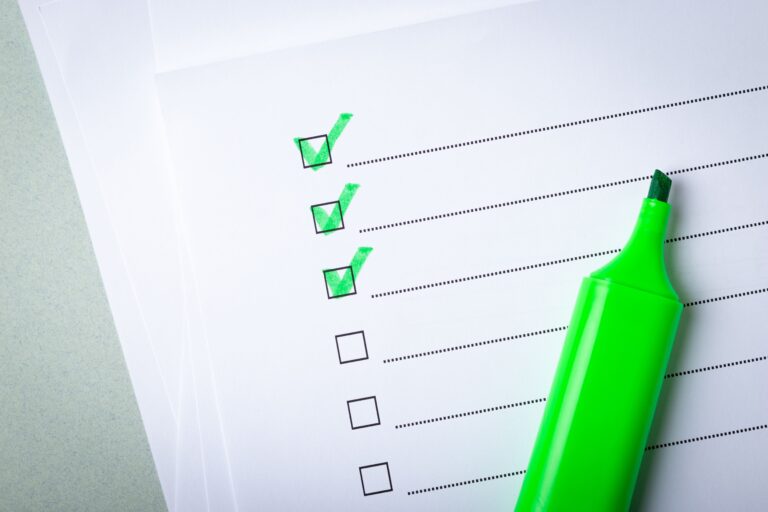How To Get Ahead When Writing A Research Paper in University

Research Paper writing is one of the first things you learn in university, and it often means spending countless hours reading articles to prepare for what feels like an endless stream of essays. The writing itself isn’t usually the hard part or even the most time-consuming. The real challenge lies in doing the research, finding reliable information, and knowing where to begin. Figuring out how to start is often the most difficult step, so here are a few tips and tricks to help you write a strong Research Paper.
Step 1: Look at your rubric
Any paper you write in university should start with looking at your rubric. The typical university rubric looks something like the picture below. Your focus should be on the first two columns. It will explain the information you need to cover; how many marks are rewarded for each section the word count requirement.
To break down a rubric look at which sections are awarded the most marks and that will tell you where your research should be focused. You can then estimate how many words should go into each section to meet your word count.
Pro tip: Make sure to refer to your rubric frequently while writing your paper to ensure that you are covering the full scope of the work.
| Criteria | Excellent (80–100%) | Good (60–79%) | Satisfactory (50–59%) | Needs Improvement (<50%) | Weighting |
|---|---|---|---|---|---|
| Introduction & Thesis | Clear, engaging introduction with a well-defined thesis statement. Sets strong direction. | Clear intro with thesis but lacks originality or precision. | Basic intro, thesis weak or somewhat unclear. | No clear thesis, weak or missing introduction. | 10% |
| Research & Sources | Wide range of credible, peer-reviewed sources. Excellent integration into arguments. | Adequate range of credible sources, some integration issues. | Limited or general sources, weak integration. | Few or unreliable sources; plagiarism concerns. | 25% |
| Structure & Organization | Logical flow with well-structured paragraphs and clear transitions. | Generally logical, some weak transitions or structural issues. | Acceptable structure but disjointed in places. | Poorly structured, ideas difficult to follow. | 15% |
| Critical Analysis | Excellent evaluation, strong arguments, counterarguments addressed effectively. | Good evaluation with some critical insights, limited counterpoints. | Basic analysis, mostly descriptive, minimal critical thinking. | Little to no critical analysis; mostly descriptive. | 20% |
| Referencing & Citation | Accurate and consistent use of APA/Harvard. Wide range of references fully cited. | Minor errors in referencing style; generally consistent. | Frequent referencing errors; some missing citations. | Incorrect or missing referencing, not in required style. | 15% |
| Writing Quality | Academic tone, excellent grammar, spelling, and clarity throughout. | Generally clear writing, minor grammar/spelling errors. | Some clarity but grammar and spelling issues affect readability. | Poor grammar, spelling, unclear writing. | 10% |
| Conclusion | Strong conclusion that reinforces thesis and insights, leaves impact. | Adequate conclusion, restates thesis without depth. | Weak conclusion, does not clearly wrap up arguments. | No conclusion or very poor ending. | 5% |
Step 2: Build Your Basic Knowledge for a Research Paper
Search engines like google and the like, are good for getting basic information and general background information, but they will not go into the depth of knowledge that you will need to write a paper. When you are just starting your research, you can use these search engines to find things like definitions and opinions on the topic. This can help you decide the different facets of the topic that you want to cover and what direction you want to take your paper in.
Now every lecturer you’ll ever have will let you know that Wikipedia is not an acceptable source of information. Which is fair enough. However, that doesn’t mean that you can’t use it. If you find good information on your chosen topic on Wikipedia then go to the reference of the source that was used for the information that you want to use and read through the actual article to make sure that the information you want to use, will be used in the right context.
Step 3: In-Depth Research for Your Paper

Once you have topic ideas and a general understanding of the research topic then you can use the university online library to search articles related to the topics you want to cover.
Here you have access to many different research papers that are reliable and have been peer reviewed.
If you are writing a paper and the information you come across while researching does not support the stance you have taken, then keep the information on hand. You can use it to build arguments about why you support opposing information, or you can pivot the direction of your paper to be in line with the research you have found.
Step 4: Mastering References in a Research Paper
Another challenge when writing a research essay is knowing if you have enough references or not. The rule of thumb here is 1 reference per 100 words. So, refer to your rubric and make sure that you check the word count. If the essay is supposed to be 1800 words, then you know that you are going to need a minimum of 18 sources.
Referencing has a slight learning curve, but it is a very good skill to have. If you do it correctly and with reliable sources, it could win you a free 5-10% on your paper. Most universities either use the APA7 or Harvard referencing types. This might also vary between courses so make sure to look at your rubric for instruction.
Pro tip: Do your referencing while you are doing the research instead of going back after you’ve written the paper. If not, then in the very least make sure to keep all the links to the articles you used so you can find them when you want to do your referencing.
Read More: How to Support the Needs of a University Student
Step 5: Writing the Research Paper
So, you’ve done your research, and you have all your notes. Now you can start writing your paper. Ensure that you start writing it at least a week before the due date. While you are writing you might find that some of the research you were planning on using doesn’t work and you might need to do more research to cover the gaps.
If possible, ensure that you finish writing your paper at least a day or two before the due date. This gives you a chance to read through it to ensure that the flow and grammar of the paper are good and you can then make sure that you have referenced as much of the information as possible.
Step 6: Submitting Your Research Paper
When you are happy with your essay then you can submit it. Try not to submit at the very last minute though. Sometimes the submission takes a couple of minutes, and you don’t want your submission to be late due to a technicality. If you submit through a portal the generates a Turnitin report, make sure to go through that report and download it so that if there are any concerns later about plagiarism you can show the report that says that it wasn’t that high.
Step 7: How AI Can Support Research Paper Writing
Now, there is no way we can talk about writing a paper without talking about AI. AI is admittedly an extremely useful tool. However, under no circumstances should you rely on it to write a paper for you. You can ask AI for background knowledge, definitions and even potential paragraph headings.
The main thing is that you cannot take the information that ChatGPT puts out as fact. There are an endless number of documented cases showing that these AI programmes often present completely made-up information as fact. Not to mention ChatGPT does not give you references and so if you have the AI write your assignment for you, you will lose out on the referencing marks.
Final Thoughts on Research Paper Success
You can probably gather that writing a research paper is a ton of work and will be very time consuming. That’s why on average you’ll get the assignment 3-4 weeks before the due date. This is to give you ample time to do your research. So, do not leave your assignment to the last minute.
Remember that you must give yourself enough time to read through different research papers and decide whether you are going to use the information. Note that if an 1800-word paper requires 18 references, you aren’t going to use every source you come across you might find that you’ll go through roughly 35 articles and only use 18 of them.
Despite all the work that goes into them if you approach it correctly and start early research papers won’t be too much of a bother. Put in a little bit of work consistently over time and you’ve got this!






